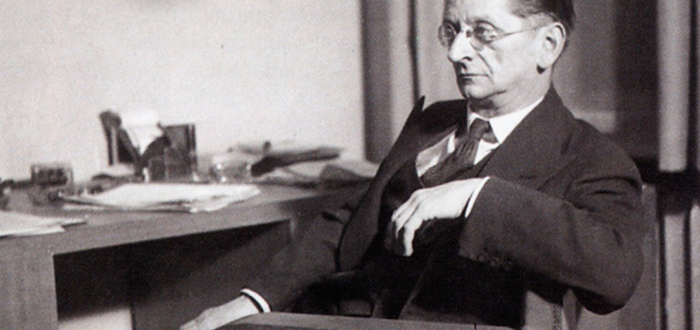
Spotlight on: Alexander Zemlinsky
“Zemlinsky can wait”, wrote Schoenberg in 1921, and the composer himself consoled his wife Louise with the thought that "my time will come after my death". It took indeed over 30 years before the musical world started rediscovering Zemlinsky’s music during the Mahler renaissance of the 1970s. The world premiere of his opera Der Traumgörge in Nuremberg in 1980 – almost 80 years after it was written – put his music in the spotlight. Like that of his contemporary Mahler, it straddles late Romanticism and early Modernism and is clearly influenced by the lush textures of Brahms and extended harmonies of Wagner.
In more recent years, knowledge of Zemlinsky has deepened and widened, scholars, performers and journalists have made substantial contributions to an ongoing process of biographical and musical discovery. As a person, Zemlinsky combined self-esteem with disarming modesty. "Everything to which you are destined will come to you. I never lifted a finger for myself," he once observed – but he also admitted that he possessed no talent for self-advertisement. His audiences are hence obliged to seek their own approach to a music which balances seemingly unbridled reserves of nervous energy against an unerring logic of form, investigates the outermost regions of tonal harmony, and clothes its ideas in strong, clearly defined colours. The listener will have little difficulty in detecting that "seismographic reactivity to the many stimuli”, as Adomo once put it, "with which he permeated himself".
Whether in the strikingly serious tone of his first opera, Sarema, the delightful folk-tale atmosphere of Es war einmal, the glittering colors and Freudian hinterland of Der Traumgörge, the stage works show Zemlinsky at his most complex and challenging. In 1935-36, with Der König Kandaules, he attempted a final synthesis, drawing for this last opera on all his insights into art and politics, eros and thanatos. No patina of over-familiarity detracts from the brilliance and emotional intensity of these scores. Performers and audiences who approach them in the appropriate spirit of curiosity and endeavour will not be disappointed.
Ricordi is currently preparing a new critical edition of the opera Es war einmal in collaboration with and supported by the Zemlinsky Fonds.
Selected works
Es war einmal (1897-99)
Fairytale opera in one prologue and three acts
by Maximilian Singer after Holger Drachmann‘s comedy of the same name
View score
Der König Kandaules (1935-36)
Opera in three acts by A. Zemlinsky after André Gide. Reconstruction and completion of the instrumentation by A. Beaumont
View score
Maiblumen blühten überall (ca. 1904)
for soprano and string orchestra
after Richard Dehmel
View score
Drei Ballettstücke (1901/1902)
Suite from the ballet Der Triumph der Zeit after Hugo von Hofmannsthal
View score
Der Traumgörge (1904-06)
Opera in two acts and an epilogue
Revisor: Antony Beaumont
View score